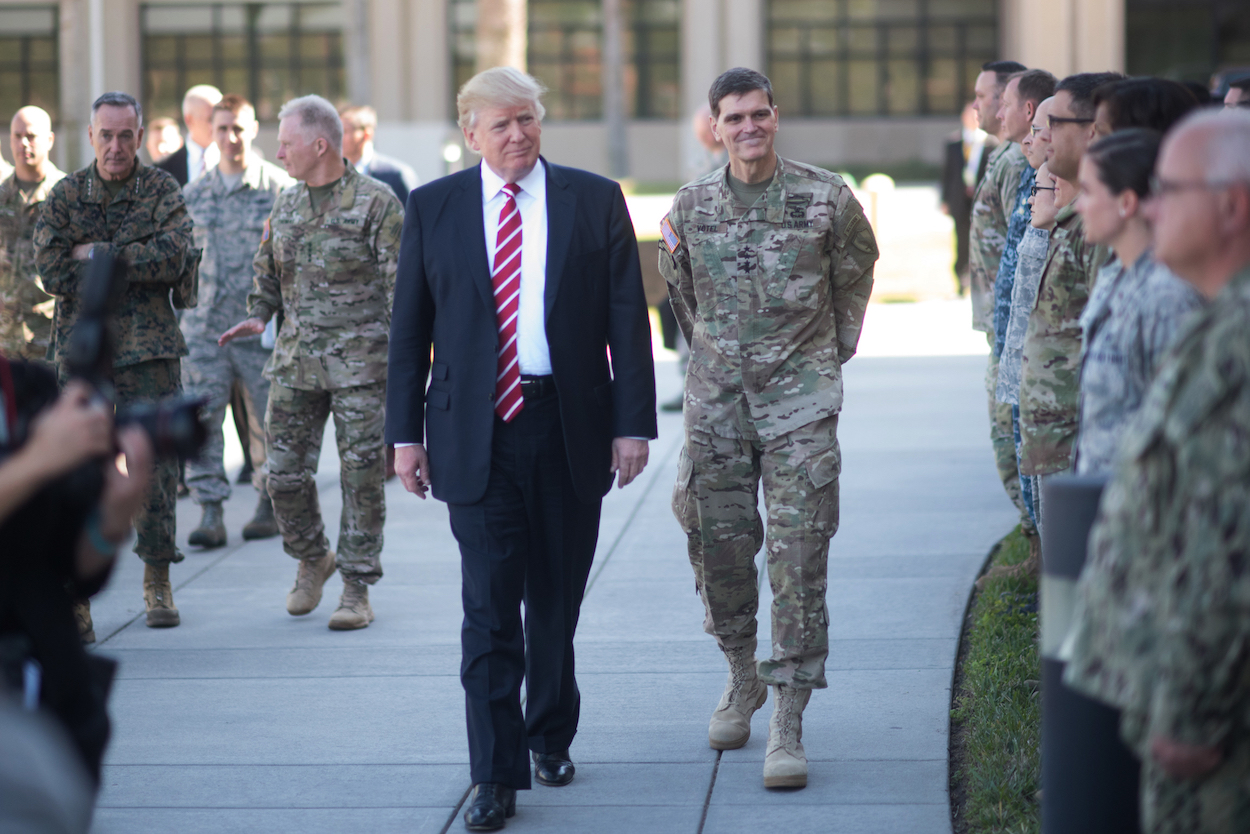by Brian Hioe
語言:
English
Photo Credit: US Navy/Public Domain
THE DECISION by American president Donald Trump to conduct an missile strikes in Syria, an act many have condemned globally, should have lessons for Taiwan, in terms of what we can expect from American foreign policy going forward as well as what would lead the Trump administration to decide on such a course of action. However, given lack of attention in Taiwan to what goes on the Middle East, thinking that this has little to do with Taiwan, how American interventionism in Syria relates to Taiwan will probably be lost on many.
Trump has been critical of American intervention in Iraq in the past, particularly regarding claims that Iraq has weapons of mass destruction. Yet with the hawkish wing of his administration ascendant, as evidenced with the appointment of former neocon John Bolton as National Security Advisor and protectionist heterodox economist Peter Navarro as assistant to the president, Trump no longer has such reservations. Attacks on Syria would be justified with the claim that they are necessary responses to Syrian leader Bashar al-Assad’s possession of chemical weapons and his use of them on his own people, never raising what the Syrian death toll from an American intervention would be.
 John Bolton. Photo credit: Michael Vadon/WikiCommons/CC
John Bolton. Photo credit: Michael Vadon/WikiCommons/CC
Bolton no doubts contributes to the willingness of the Trump administration to conduct military strikes in Syria. Bolton has a track record of more or less advocating military solutions to any and all of America’s foreign policy quandaries, including pushing for conflict with Iraq, Iran, North Korea, and China.
Continued American military adventurism will likely damage the international reputation of America globally. However, more directly pertaining to Asia, Bolton has also been critical of talks taking place between Trump and North Korean leader Kim Jong-un, seeming to only wish for military solutions to nullify the danger of North Korea’s nuclear weapons. Reports of a meeting between CIA director and incoming secretary of state Mike Pompeo and North Korean leader Kim Jong-un seem to indicate that a Trump-Kim meeting will indeed take place in the future after a period of uncertainty whether they would take place following criticisms from Bolton and other key Trump appointees, yet in many ways, one can expect dangerously aggressive policy from Trump in Taiwan and elsewhere. In a similar timeframe, suggestions by Trump that America might be seek to rejoin the TPP, then comments retracting this—likely after criticisms from within Trump’s base such individuals such as Bolton and Navarro—illustrate the continued incoherency of the Trump administration in terms of wavering on policy.
It is crucially important to note that this is not the first time that Trump has drawn flak for misile attacks in Syria Syria. Trump previously drew criticism in April 7th, 2017 for missile attacks aimed at the Syrian government’s Shayat Airbase in response to Khan Shaykhun chemical attack conducted by the Syrian government several days earlier on April 4th, 2017. In particular, a criticism leveraged against Trump was that the missile attacks were carried out only to distract from domestic criticisms of Trump, such as accusations that the Trump administration had collaborated with the Russian government, a Syrian ally, in order to undermine American elections.
With the current FBI probe led by special counsel Mueller closing in on Trump, as observed in raids on the office of longtime Trump lawyer Michael Cohen, some have also perceived Trump’s plan to conduct military strikes in Syria as another attempt at distraction. This point to the dangerous tendency of the Trump administration to conduct foreign policy actions out of a desire to distract from domestic criticisms.
 Donald Trump. Photo credit: Department of Defense/Public Domain
Donald Trump. Photo credit: Department of Defense/Public Domain
One can see, then, how this could be either dangerous or beneficial for Taiwan. Trump could be pushed towards a pro-Taiwan stance in response to criticisms at home in America, particularly if Trump is seen as cozying too much to China—as has happened in the past, notably in the period immediately after Trump’s meeting with Chinese president Xi Jinping.
On the other hand, if Trump is perceived as too aggressive towards China, as some perceive him as being now being, Trump could also decide to overcompensate by suddenly throwing Taiwan under the bus in terms of policy. Syrian resistance forces fighting against the Assad administration were notably supported by the US, in order to avoid a directly military intervention, but they have been thrown under the bus by the US multiple times.
In this sense, the dangerous and unpredictable actions of the Trump administration take place globally, and the effects on Taiwan should be seen in a global frame. Taiwan will have to watch where it steps carefully, then.

